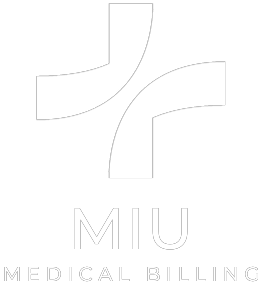Introduction:
Denial management services are vital in the intricate healthcare revenue cycle management, which helps medical practices and hospitals achieve sustainable financial status. Such specialty services target solving issues about claims that have been denied, primarily as they affect the economic status of healthcare facilities. Medical billing denial management service involves identifying, analyzing, and overcoming all forms of claim rejections or denials from insurance companies. Improved denial management also benefits from realizing facility cash and enhanced employee productivity, thereby improving facility financial performance.
The Importance of Denial Management in Healthcare

Healthcare denial management is a sub-process in the revenue cycle management process. With claim submissions and reimbursement in mind, it is possible to identify numerous challenges healthcare providers face. What can happen is that insurance providers will try to deny or even delay claims for different reasons, including simple mistakes such as incorrect code input and policy-related issues. Denial management services effectively manage such challenges by helping healthcare organizations establish specific strategies for preventing denials and the effective handling of denials when they occur. With the help of denial management services, the percentage of rejected claims decreases, and the time to receive payments is much shorter, which is essential for the providers’ financial situation.
Common Causes of Claim Denials in Medical Billing
To apply denial management services, the causes of claim denials must be understood. The significant causes of claim rejections that have been reported include inaccuracies in patient information, invalid or missing insurance information, wrong code, absence of prior authorization, and delay in filing. Denial management also entails identifying such problems to find ways of preventing them from happening in the first instance. Hence, by eliminating those reasons, healthcare providers can reduce their denial rates and enhance their business, cash flow, and revenue cycles.
Critical Components of Effective Denial Management Services
Effective claims denial management includes the following key components: problem-solving, which provides for data analysis, workflow redesign, staff development, and application of technology. DMT employs analytical tools that parse and ‘mine’ claims denials to detect trends and trends that the providers can resolve. An efficient workflow means denial management does not take lots of time and resources, helping solve the denials. One way to minimize such mistakes is to ensure that billing teams undergo extensive training that keeps them abreast with the existing coding and billing laws. Lastly, implementing technologies in performing denials allows healthcare organizations to have their denial management carried out correctly and with minimal errors.
Proactive Strategies for Preventing Claim Denials
Another objective of denial management services is to avoid the likelihood of denial of claims before it happen. The best preventive measures are as follows: Denial management, pre-submission claim scrubbing procedures, coding system audit more often, and getting updated with payer policies and guidelines. Other aspects of care denial management in healthcare insurance include monitoring communication with insurance companies regarding any emerging problems and solving them before they lead to denial. Hence, by adopting preventive measures, healthcare providers can eliminate or at least reduce their denial rates and enhance their financial position.
The Role of Coding Denial Management Services
It is crucial to note that coding denial management services are critical components of overall denial management. These specialized services mainly target denial of service due to coding errors, which is one of the biggest reasons claims are usually rejected. Denial management services require coding denied claims, assessment of the denial, determination of coding problems, and application of corrective action to reduce denial in the future. As coding specialists possess coding skills and keep up-to-date with the existing coding standards and guidelines, these service providers enable the healthcare facilities to enhance their coding compliance and, therefore, cut short the incidences of denial due to improper coding.
Leveraging Technology in Denial Management Healthcare
Denial management in healthcare processes is critical in today’s technological world. Extended options in the software designed for claim denial management enable tracking, analysis, and resolution of the given issue. Denial management can be made much simpler with the help of these technologies since they can recognize potential problems before the claims have been submitted or make comprehensive reports on the tendency of the denials. Denial management services capture and integrate this technological advancement into revenue cycle management to enhance the efficiency of processes.
The Benefits of Outsourcing Denial Management Services
Many healthcare providers often outsource denial management services to third-party vendors. There are several advantages of outsourcing denial management, as listed below: employers can obtain valuable expertise, efficient technology application, and dedicated personnel for handling denials. Outsourcing solutions for denial management services are available, and these competent outsourcing service providers can significantly decrease healthcare organizations’ denial rates and increase overall organizational revenue streams so that staff and healthcare professionals can concentrate on value-added patient care services. As such, by aligning with a competent denial management service provider, healthcare organizations can enhance their revenue cycle and, therefore, improve their financial performance.
Conclusion:
Therefore, it can be postulated that denial management services are an essential component of the improved financial position of a healthcare organization. With increased focus on better strategies regarding denial management, treatment centers can dramatically decrease the amount of rejected claims, strengthen their cash flow, and improve the general performance of the revenue cycle. Therefore, denial management services are holistic services where all the issues concerning claim denials are handled from prevention to resolution. As the healthcare environment progresses, strong denial management will be crucial for organizations wanting to sustain financial solvency while maintaining their efforts to provide quality patient care.




